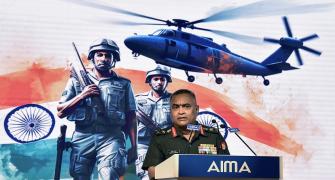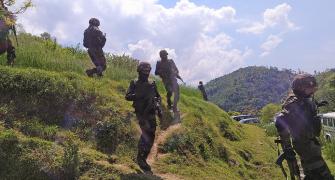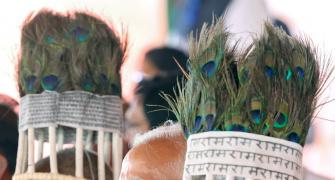 Information and Broadcasting Minister Arun Jaitley on Monday said the "age of bans" on the media is over, observing that it is "literally impossible" to implement them.
Information and Broadcasting Minister Arun Jaitley on Monday said the "age of bans" on the media is over, observing that it is "literally impossible" to implement them.
Delivering the Sardar Patel lecture organised by All India Radio in New Delhi, Jaitley, who is also the finance minister, noted that while the right to freedom of expression has expanded in India through successive judicial verdicts and technological advances, its misuse continues to happen.
"Many believe, and I am one of those who do believe, that the age of bans is now over. It is literally impossible if not very difficult to implement them," he said.
"Should the state step in? As far as possible, no," he said.
The minister noted that while print media and to a large extent electronic media adopt discretion in their content, social media completely lacks such a mechanism.
He pointed out that makers of the Constitution rightly held that freedom of speech and expression is not absolute and subject to reasonable restrictions which were specifically defined.
"In a society where because of multi-religious, multi-cultural reasons there are sensitivities, what do we do if somebody crosses the Lakshman Rekha itself? What would the Indian society have done if instead of the Danish cartoonist, it would have been an Indian cartoonist? And therefore we have criminal laws in provision but then in extreme cases, very reluctantly so, some power of restraint in larger interest so that it doesn't disturb public order, and that is where those 1950s restrictions imposed in Article 19(2) itself will have an important role to play," he said.
Jaitley said that in a changing media landscape, with the arrival of electronic media, news became more sensational.
"News was what television cameras could capture. What cameras can't capture won't be news. A major Africa summit will be some news, but a young girl returning home from Pakistan would be big news because the television captures it differently," he added.
He said that there is now a difference between actual news and channel driven news.
"As the marketeers of news express their right to free speech, the viewer or the reader's right to information and knowledge itself is also getting impacted," he said.
Speaking about social media, he said while citizens have got a voice, it is an unregulated medium and there is also a large amount of false, defamatory and also damaging content.
Referring to the long-pending dispute or issue of debate is about the right of journalists regarding protecting their sources Jaitley said that while journalists have the right to conceal and protect their sources in public interest but when it comes to national security, secrecy of sources cannot be of higher importance.
"I think the way courts world over have moved, is the correct direction. There is no fundamental right to conceal your sources but there is public interest which enables you to conceal your sources. And that public interest therefore will always have to be balanced with competing public interest," Jaitley, himself a lawyer of repute, said.
He said that if it's a matter of individual reputation, the public interest of secrecy of source will have to be maintained but if it is national security, "national security will be considered much higher than the secrecy of sources itself".
That's how the trends of decision making world over is moving, he said.
In the lecture, Jaitley also referred to various other issues related to media including procedures of defamation.
Referring to the demand related to decriminalisation of defamation, he said that it has been seen that countries which have decriminalised it are the ones where the civil proceedings regarding such an offence are expeditious.
He also said with the advent of Internet, the situation has changed and any news published in one part of the globe can be read in another and various jurisdictions deal with defamatory content differently.
The minister said that in this situation, we have to rely on a sense of fairness of those who participate on social media.
Image: Union Minister for Finance, Corporate Affairs and Information & Broadcasting Arun Jaitley delivering the 'Sardar Patel Memorial Lecture - 2015', organised by the All India Radio, in New Delhi. Photograph: PIB photos








